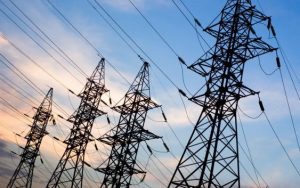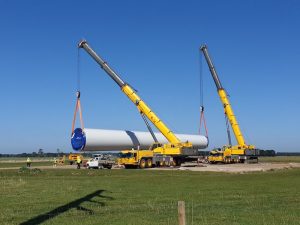The Australian energy market is set for a major shake-up with the launch of a major new government-backed initiative to create an open marketplace for locally generated and stored rooftop solar power to be traded between households, businesses, communities and network utilities.
Unveiled on Thursday, the Decentralised Energy Exchange — or “deX” — is being hailed as a revolutionary digital marketplace that will change the way energy is produced, traded and consumed at a local level in Australia.

The project, which is currently at the pilot phase, is being funded by the Australian Renewable Energy Agency (ARENA) and led by energy tech startup GreenSync, in collaboration with network operators United Energy and ActewAGL, energy management start-up Reposit Power, and new energy retailer Mojo Power.
It will, for the first time in Australia, create an open marketplace for the value of energy generated by solar panels and stored in battery packs to be traded on a mass scale.
“Homes and businesses will be able to monetise their solar and storage assets by essentially renting them to the grid when they’re most needed,” said GreenSyncy CEO Phli Blythe.
“Imagine a single marketplace where consumers can connect and configure their energy resources, and all of the upstream value generated by these assets are automatically paid into a bank account or digital wallet.”
But perhaps most importantly, the project will shift the Australian energy market from a centralised to a decentralised model — transforming the way electricity grids are used, and removing the need for multi-billion dollar network infrastructure upgrades.
“deX will revolutionise peak electricity management and drive more effective investment in energy infrastructure,” Blythe said.
“We have lots of small ‘power plants’ on more than 15 per cent of the roofs in Australia. Getting all of these working together to support the grid is a powerful proposition for the widespread adoption of renewable energy technology and will fundamentally improve the reliability and reduce the intermittency of these resources in the energy mix.
This comes at a key time for Australia, with energy security dominating political debate and media commentary as the nation’s ageing electricity grids limp through another hot summer.
As we have reported on RenewEconomy, a number of outages in South Australia and load-shedding in New South Wales have highlighted these problems, while simultaneously deepening the political divide over renewables, and how quickly the inevitable transition to clean energy generation sources should be made.
At the crux of this divide is the political hot potato of electricity costs, which the have increased by more than 100 per cent across Australia, with some of the highest power bill increases recorded in the eastern coal-dominated states.
The Coalition argues that the Labor Opposition and many Labor state governments’ high renewable energy targets will drive electricity prices up further, while the pro-renewables camp, including many industry analysts and market participants, argue that the cost of of the shift to renewables will be much cheaper than business as usual.
GreenSync said on Thursday that deX would work to drive investment in renewable energy, while allowing utilities to avoid unnecessary, multibillion dollar investment in underutilised infrastructure.
“This is a world-first, market defining innovation that will support how energy markets work with intermittent renewables, encouraging growth in such resources,” GreenSync said in a statement.
“For GreenSync, this will be an important global transition point, evolving its load management platform into an energy marketplace.”
ARENA CEO Ivor Frischknecht said the Agency’s backing of projects like deX went to its primary goal of accelerating Australia’s shift to renewable energy.
“To smoothly transition to a renewable energy future, we need new technologies and markets,” he said.
“This could encourage more investment in solar and batteries, supporting the grid, reducing the need for infrastructure investment and ultimately reducing the cost of renewables in Australia.”
ACT climate minister Shane Rattenbury notes that deX is particularly good news for the nation’s rooftop solar households, many of whom would argue that the true and fair value of their contribution to the grid has not been properly accounted for.
“DeX will help us understand how distributed energy services like solar and battery storage can be valued, reflecting when and where the service is provided, and how that value can be shared fairly between customers and network businesses. This knowledge will inform our transition to a high-penetration renewables grid, both in Canberra and nationally.”
United Energy’s Greg Hannan said the exchange would bring Australia a step closer to having the kind of localised or “mini markets” that would optimise value for all parties, while managing the key issues of reliability and stability.
“This is key to creating value for energy customers in the grid of the future,” he said.
An industry discussion paper will be released ahead of the first pilot projects.






